This post is part of my Why Series here on the blog. I often write about fair trade, eco-friendly, socially conscious living, but I am not always able to fully address in each of my blog posts WHY I choose to live this way. This series goes into greater detail about my why!
A couple of years ago, I became a big proponent of buying ethically made products. But what does ethically made even mean, and why is it important? And where can you find ethically made products? This post explains it all!
What is Ethically Made?
Defining “ethically made” is tricky. Several weeks ago, I discussed why I buy fair trade. Fair trade is easy to explain, because there is actually a certification for it. “Ethically made” is a bit more nebulous. To me, something that is ethically made is produced in a way that is kind toward people, animals, the environment, etc. If something is produced in an ethical way, the workers are being paid a fair wage and have good working conditions. An ethical company also looks for ways to make the production process more sustainable and works to lessen their environmental impact.
Brands can vary quite a bit in just how ethical they are. One brand may be taking small steps to ensure their workers have safe work environments, while another brand may be taking lots of large steps (i.e. obtaining a B corp certification) to not only ensure safe work environments, but also to provide fair wages, reduce waste, use eco-friendly dyes, institute a maternity leave policy, etc. Both brands may be considered “ethical,” because they are both doing business more ethically than traditional brands, which unfortunately tend to focus solely on profit to the detriment of social responsibility.
Why Should I Purchase Ethically Made?
For People
Unfortunately, ethical production practices are NOT common in our modern economy. The reason you are able to purchase a t-shirt for only $5 at Target is because of UNethical production practices. Here in the United States, we frequently source products from countries where there aren’t minimum wage laws nor good working conditions, because this means the products are much cheaper to make. And companies are always looking for ways to make things cheaper, because their consumers (that’s us!) are always demanding the lowest price possible.
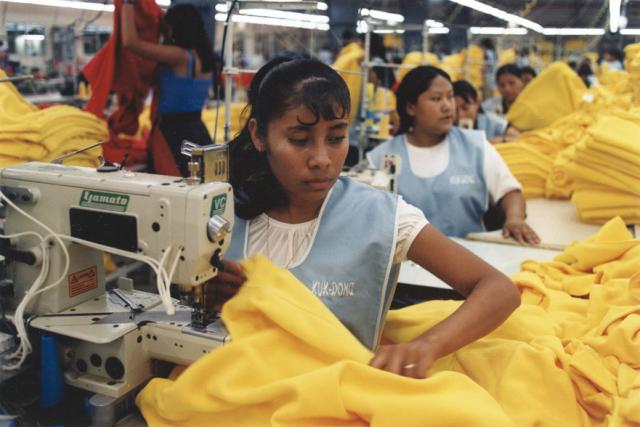
I firmly believe as one of my core moral values that all humans are equal in terms of their worth. I also believe that all humans should be treated with kindness and respect. All of these moral values are violated when we engage in unethical labor practices.
I choose to buy ethically made products because I want the producers of my products to be able to afford food for themselves and their families. I want them to have pleasant and safe work environments just like I would want for myself. I want them to be paid decently, just as I would want any of my own family members or friends to be paid decently. I want the producers of my belongings and my food to be treated with dignity and respect.
For the Environment
Environmental destruction and pollution are also common in the world of modern manufacturing. The creation of materials for our goods often results in harmful greenhouse gas emissions. Production also uses up valuable (and limited!) resources such as water, trees, and other types of plants. And many of the goods we produce are made of non-biodegradable plastic, which is polluting our oceans and soil.
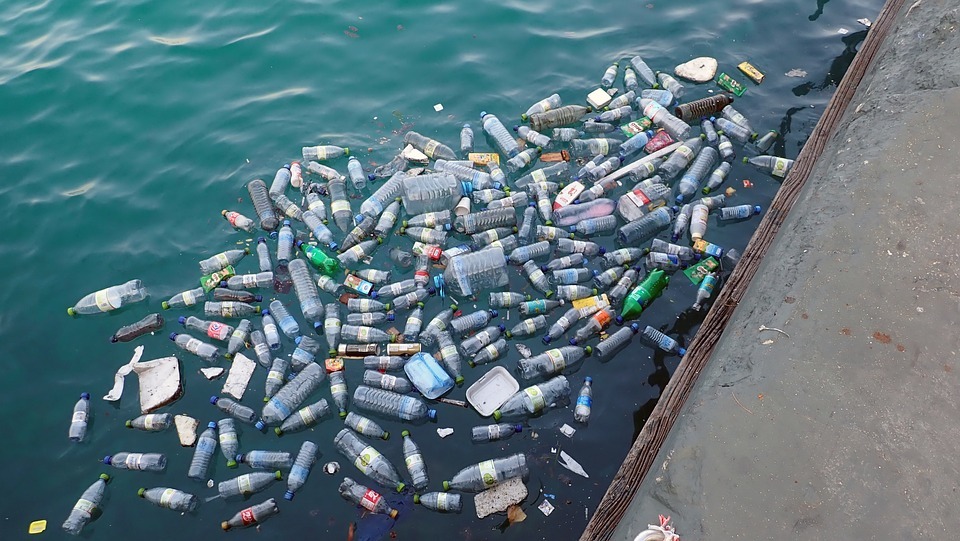
At some point, all of this pollution and overconsumption will render our earth no longer able to support the human species. Most of earth’s resources are finite at some point, and we are rapidly using up many of them. Accelerated climate change caused by greenhouse gas emissions has the power to mightily disrupt earth’s fragile ecosystems and food chains, leaving humans and other animals without adequate food for survival. As someone who cares greatly about the well-being of other people, including generations to come, I think it is important to protect our environment so that others are able to survive.
Because the Power is in Our Hands
Many people justify buying products that are made in an unethical manner because they don’t see themselves as personally responsible for unethical labor practices. We deflect personal responsibility by saying that it is the companies who are the bad guys making the choices to oppress workers and pump toxins into the environment, not us. But, this really isn’t true. As consumers in a free economy, we have a choice about which products we buy. If we make a conscious decision to purchase a product that was made in an unfair manner and give our money to that company, we directly create more demand for unfair labor and environmental practices. We are absolutely at fault for these unfair practices when we support them with our dollars.
Shouldn’t I Just Buy Fair Trade?
It’s never a bad idea to buy fair trade! But, I don’t think you have to exclusively buy fair trade in order to make a positive impact with your purchases. There are many companies that don’t have the time or money for fair trade certification, but they are making their products ethically anyway.
There are also companies that may still engage in unfair trade practices but are making great strides in changing their production model to be more ethical (example: Nike). These companies should be supported for their efforts to do the right thing, even if they still have progress to make. By supporting them when they take one small step in the right direction, we encourage them to continue taking those steps.
Where Do I Find Ethically Made Products?
If this blog post has convinced you that buying ethically made is a great thing, you may be wondering where in the heck you can find ethically made products.
You can probably find some ethically made products where you already shop…you just need to know what to look for! Next time you’re out at a store, be on the lookout for Fair Trade Certified logos (especially on coffee or chocolate), B Corp logos, and words such as “eco-friendly” or “organic.” Packages and labels will often boast if a product has been made without certain types of toxins, such as BPA, or if environmentally friendly dyes have been used. Once you know what to look for, you will be surprised at the places where you start noticing products that have been made ethically….West Elm, Target, Amazon, Dick’s Sporting Goods, and more!
Naturally, the Internet is a great place for finding out more about the ethics of your favorite brands and discovering new brands that are producing ethically. Ethicaloo is a database that provides information about the ethics and sustainability of popular brands, such as Victoria’s Secret and Urban Outfitters. DoneGood is an online suppository of ethical brands that allows you to search by specific values (eco-friendly, made in the USA, etc.) and often offers discount codes for the brands they feature. DoneGood also offers a Google Chrome browser plugin that will alert you if you are shopping on a website with poor ethics and will offer suggestions of ethical alternatives.
And of course, bloggers can provide great resources for finding ethically made products! Here are some of my favorites:
Change the World by How You Shop. My friend LeeAnne has ethical shopping guides for just about anything you could want: office supplies, toys, wedding stuff, etc! She is constantly researching new brands and adding to her comprehensive guides. An incredible resource!
Still Being Molly. My friend Molly has a great list of fair trade, ethical, and made in the USA brands on her blog. Much of the list features clothing and accessory brands, but you can also find random things like bento boxes, nursery art, and more!
And of course, my very own Fairly Southern, which you can subscribe to here! I frequently write about ethical products or brands I have found. You can also check out my Ethical Fashion, Ethical Living, and Ethical & Fair Trade Home Goods boards on Pinterest.
Comment below with your thoughts or questions regarding ethical production. I am excited to continue this conversation!
And, be sure to check out my other Why Series posts here.
xoxo Laura
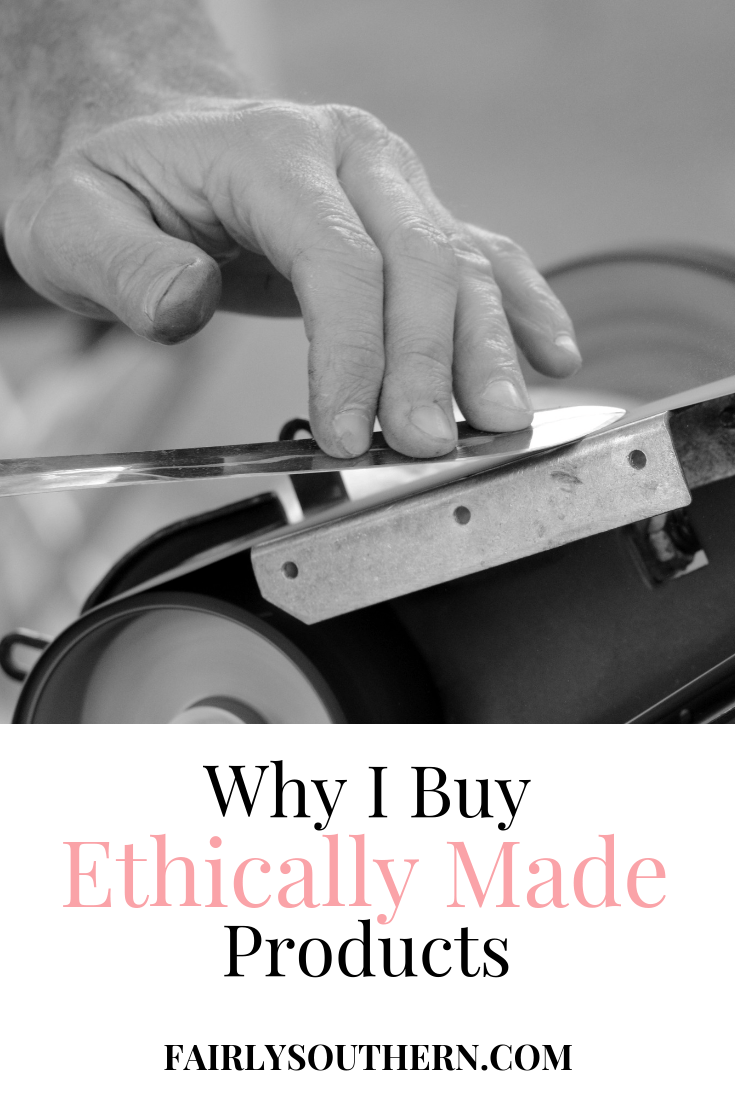
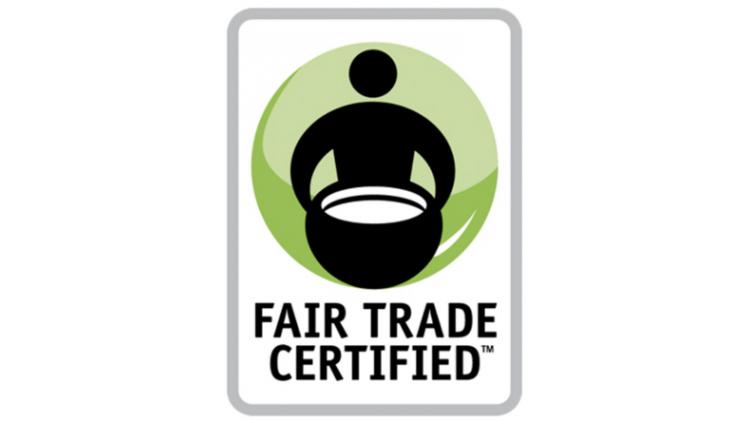
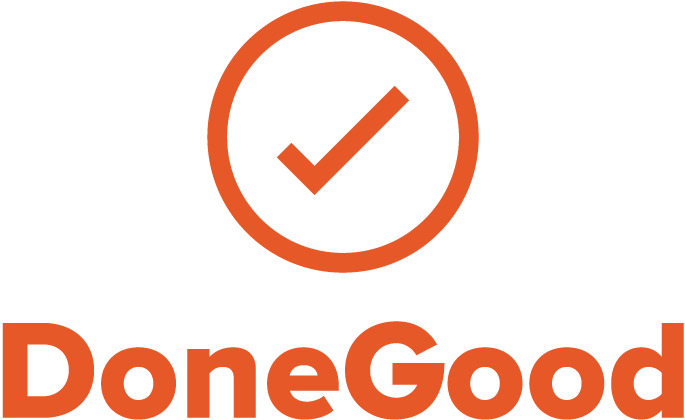
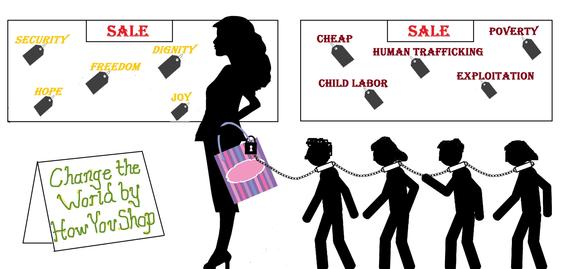

Well put! And thanks for the shout out 🙂